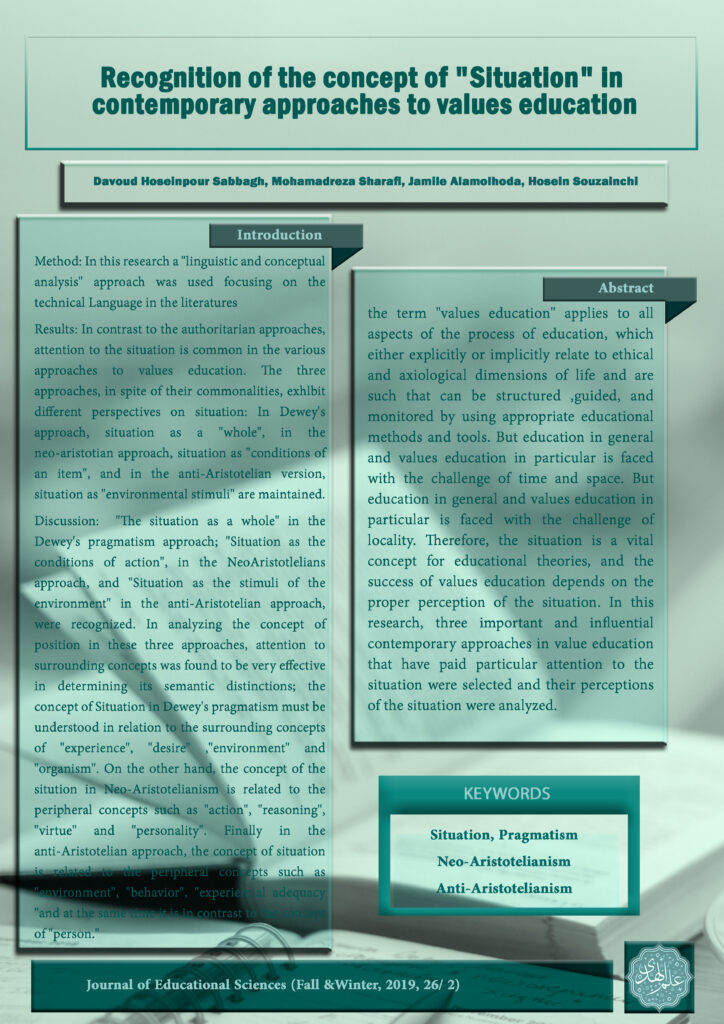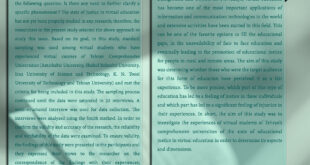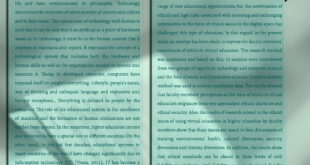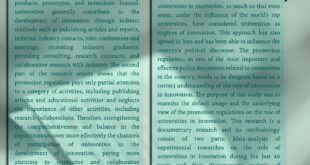Recognition of the concept of “Situation” in contemporary approaches to values education
Davoud Hoseinpour Sabbagh*
Mohamadreza Sharafi**
Jamile Alamolhoda***
Hosein Souzainchi****
* Ph.D. Student, Tehran University, Tehran, Iran. Corresponding Author: hosain.da@gmail.com
** Associate Professor, Department of philosophy of Education, University of Tehran, Thehran, Iran.
*** Associate Professor, Department of Educational Sciences, Shahid Beheshti University, Tehran, Iran.
**** Associate Professor, Department of Philosophy of Social Sciences, University of Bagher al-olum., Iran.
Introduction
the term “values education” applies to all aspects of the process of
education, which either explicitly or implicitly relate to ethical and
axiological dimensions of life and are such that can be structured ,guided,
and monitored by using appropriate educational methods and tools. But education in general and values education in particular is faced with the
challenge of time and space. But education in general and values education in particular is faced with the challenge of locality. Therefore, the situation is a vital concept for educational theories, and the success of values education depends on the proper perception of the situation. In this research, three important and influential contemporary approaches in value education that have paid particular attention to the situation were selected and their perceptions of the situation were analyzed.
Method
In this research a “linguistic and conceptual analysis” approach was used focusing on the technical Language in the literatures
Results
In contrast to the authoritarian approaches, attention to the situation is common in the various approaches to values education. The three
approaches, in spite of their commonalities, exhlbit different perspectives on situation: In Dewey’s approach, situation as a “whole”, in the neo-aristotian approach, situation as “conditions of an item”, and in the anti-Aristotelian version, situation as “environmental stimuli” are maintained.
Discussion
“The situation as a whole” in the Dewey’s pragmatism approach ;
“Situation as the conditions of action”, in the NeoAristotlelians approach, and “Situation as the stimuli of the environment” in the anti-Aristotelian approach, were recognized. In analyzing the concept of position in these three approaches, attention to surrounding concepts was found to be very effective in determining its semantic distinctions; the concept of Situation in Dewey’s pragmatism must be understood in relation to the surrounding concepts of “experience”, “desire” ,”environment” and “organism”. On the other hand, the concept of the sitution in Neo-Aristotelianism is related to the peripheral concepts such as “action”, “reasoning”, “virtue” and “personality”. Finally in the anti-Aristotelian approach, the concept of situation is related to the peripheral concepts such as “environment”, “behavior”, “experiential adequacy “and at the same time it is in contrast to the concept of “person.”
Keywords: Situation, Pragmatism, Neo-Aristotelianism, Anti-Aristotelianism

To download the full article file, click on the link below “Recognition of the concept of Situation”
 Dr Jamilesadat Alamolhoda Personal Website
Dr Jamilesadat Alamolhoda Personal Website


